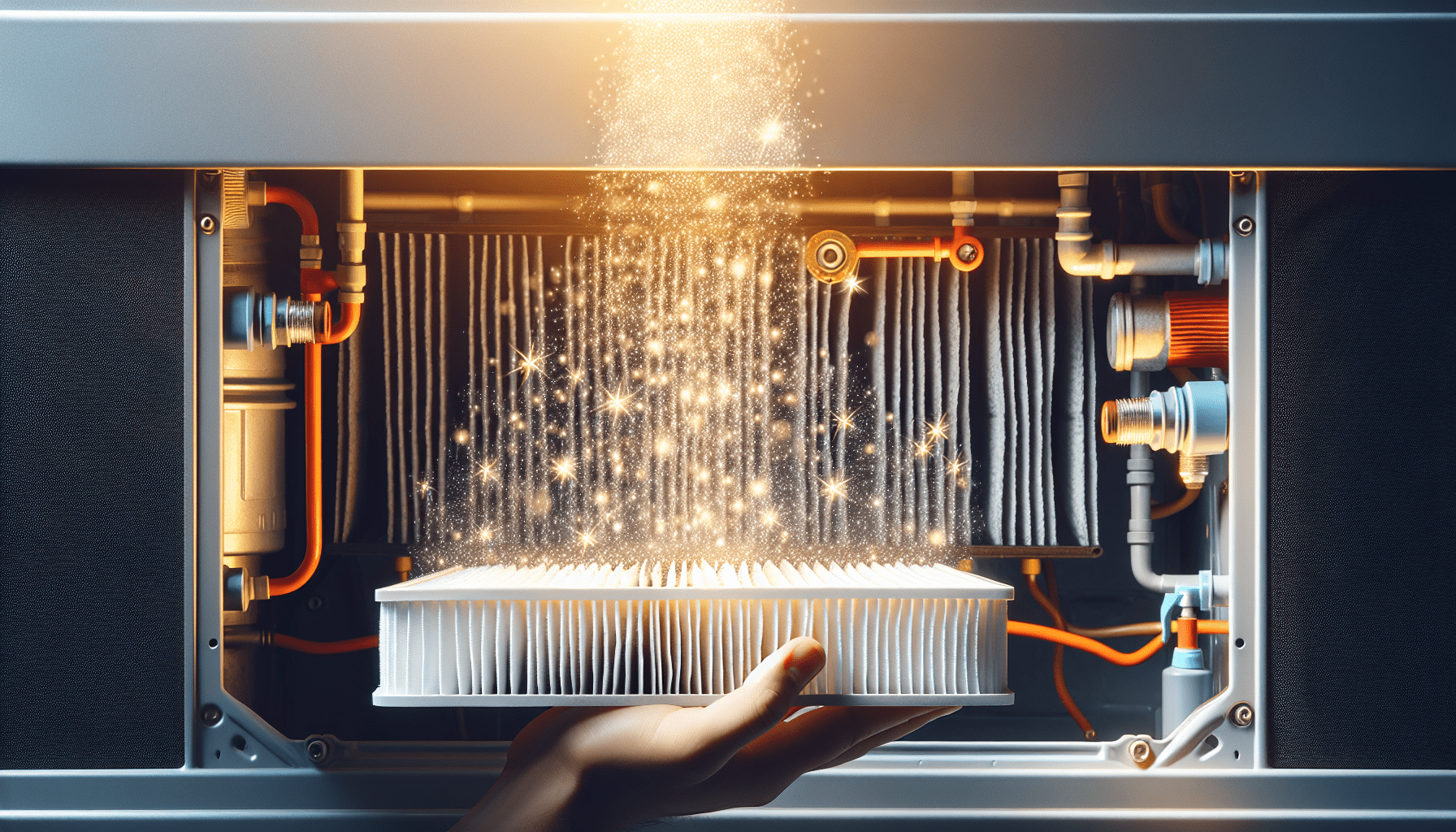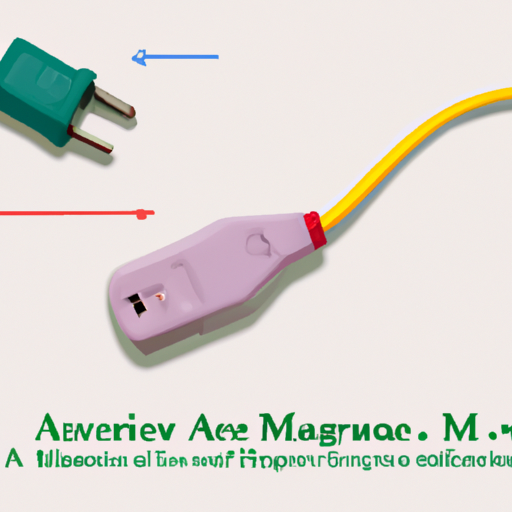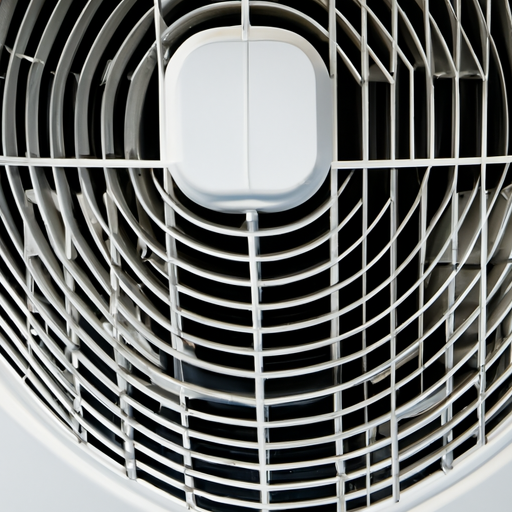In this beginner’s guide, you will discover the essential tips and tricks to keep your air conditioning system running smoothly year-round. From simple maintenance tasks to preventative measures, we will provide you with all the necessary information to ensure the longevity and efficiency of your AC unit. By implementing these easy steps, you can enjoy a cool and comfortable environment in your home or office, while also saving money on costly repairs and replacements. So, let’s dive in and learn how to take care of your air conditioning system like a pro!

Understanding Your Air Conditioning System
Air conditioning systems are complex machines that work to keep your home cool and comfortable during the hot summer months. To better understand how your air conditioning system operates, it’s important to first identify the main components of the system.
Identifying the main components of an air conditioning system
The main components of an air conditioning system include the compressor, condenser, evaporator, and expansion valve. The compressor is responsible for circulating the refrigerant and increasing its pressure. The condenser releases heat from the refrigerant, while the evaporator absorbs heat from the indoor air. The expansion valve regulates the flow of refrigerant into the evaporator.
Explaining the function of each component
Each component of an air conditioning system plays a crucial role in the cooling process. The compressor helps to pressurize the refrigerant, allowing it to flow through the system. The condenser releases heat from the refrigerant, turning it from a high-pressure gas to a high-pressure liquid. The evaporator absorbs heat from the indoor air, allowing the refrigerant to evaporate into a low-pressure gas. Lastly, the expansion valve controls the flow of refrigerant into the evaporator, ensuring that the cooling process is efficient.
How an air conditioning system works overall
In simple terms, an air conditioning system works by removing heat from the indoor air and transferring it outside. The process begins with the compressor circulating the refrigerant, which collects heat from the indoor air through the evaporator coil. The heated refrigerant then travels to the condenser where it releases the collected heat to the outside air. As the heat is removed, the refrigerant returns to its original state, ready to begin the cycle again.
Importance of Regular Air Conditioning Upkeep
Regular upkeep of your air conditioning system is essential to ensure its longevity and optimal performance. Here are some reasons why regular maintenance is so important:
Prolonging the lifespan of your air conditioning system
Regular maintenance, such as cleaning and inspections, can help identify potential issues before they become major problems. By addressing these issues early on, you can prevent them from causing significant damage that may shorten the lifespan of your air conditioning system.
Maintaining optimal performance
A well-maintained air conditioning system will operate at its peak performance, providing efficient cooling and comfort. Regular upkeep, including cleaning and lubricating various components, can ensure that your system is functioning properly and efficiently.
Preventing costly breakdowns and issues
Neglecting regular maintenance can increase the likelihood of sudden breakdowns and costly repairs. By keeping your air conditioning system in good working condition, you can minimize the risk of unexpected malfunctions and the resulting expensive repairs.
Ensuring energy efficiency
An air conditioning system that is well-maintained and clean will use less energy to cool your home. Regular upkeep, such as cleaning the condenser coils and replacing dirty filters, can help improve the energy efficiency of your system, ultimately reducing your energy consumption and lowering your utility bills.
Identifying Common Air Conditioning Problems
While regular maintenance can go a long way in preventing issues, it’s important to be aware of common air conditioning problems that may arise. By knowing the symptoms of these issues, you can take appropriate action and determine when professional help is necessary.
Types of common issues and their symptoms
Common air conditioning problems include refrigerant leaks, clogged air filters, malfunctioning thermostats, frozen evaporator coils, and faulty fans. These issues can lead to inadequate cooling, poor airflow, strange noises, and increased energy usage. Recognizing these symptoms can help you identify potential issues and address them promptly.
Understanding when professional help might be necessary
While some air conditioning issues can be easily resolved with basic maintenance and troubleshooting, there are instances where professional help is required. Complex issues, such as refrigerant leaks or electrical problems, should be addressed by a qualified HVAC technician. Additionally, if you are unsure of the source of a problem or lack the necessary skills to fix it, it’s best to seek professional assistance to avoid causing further damage.
Preventive measures to avoid these issues
Regular maintenance, such as cleaning the air filters, checking the thermostat, and inspecting the condenser coils, can help prevent many common air conditioning problems. It’s also important to avoid neglecting routine upkeep and promptly address any minor issues that arise. By taking proactive measures, you can reduce the risk of experiencing major air conditioning problems.
Routine Cleaning of Air Conditioning Unit
Proper cleaning of your air conditioning unit is crucial to ensure its efficiency and longevity. By performing routine cleaning, you can prevent the build-up of dirt and debris that can hinder the system’s performance.
Cleaning the exterior of your air conditioning unit
Start by cleaning the exterior of your air conditioning unit. Use a garden hose to gently spray away any dirt or debris that has accumulated on the unit. Pay special attention to the fins and coils, as these areas can easily become clogged with dust and grime. Be careful not to use excessive force when cleaning to avoid damaging the delicate components.
Cleaning the air filters
One of the most important maintenance tasks is cleaning or replacing the air filters of your air conditioning system. Dirty filters can restrict airflow and reduce the efficiency of your system. Remove the filters and gently vacuum or wash them, depending on the type of filters you have. If they are heavily soiled or damaged, it is recommended to replace them with new filters.
Removing dirt and debris from the condenser coils
The condenser coils, located in the outdoor unit, are responsible for releasing heat from the refrigerant. Over time, these coils can become coated with dirt and debris, hindering their ability to efficiently transfer heat. To clean the condenser coils, use a soft brush or a special coil cleaning solution to remove any build-up. Take care not to bend or damage the delicate fins while cleaning.

Checking and Replacing Air Filters
Air filters play a crucial role in maintaining the air quality in your home and the efficiency of your air conditioning system. Regularly checking and replacing air filters is essential for optimal performance.
Understanding the importance of clean air filters
Clean air filters are vital because they help trap dust, pollen, and other airborne particles, preventing them from entering your home. Additionally, clean filters allow for proper airflow, preventing strain on the air conditioning system and improving its efficiency.
How to check your air filters
To check your air filters, locate the return vent where air is pulled in by the air conditioning system. Remove the cover and inspect the filter for dirt and debris. If the filter appears dirty or clogged, it is time to clean or replace it.
When and how to replace your air filters
Ideally, air filters should be replaced every 3 months or more frequently if you have pets or suffer from allergies. To replace the filters, consult your air conditioning system’s manual for instructions specific to your unit. Some units may have disposable filters that can be easily swapped out, while others may require reusable filters that need to be cleaned and dried before reinstallation.
Maintaining the Condenser Unit
The condenser unit is a vital part of your air conditioning system that requires regular maintenance to ensure its optimal performance.
Understanding the importance of a clean condenser unit
A clean condenser unit is essential because it allows for proper heat exchange, facilitating the cooling process. When the condenser coils become dirty or clogged, the air conditioning system has to work harder to release heat, leading to decreased efficiency and increased energy consumption.
How to clean the condenser unit
Start by turning off the power to the condenser unit to avoid any accidents. Remove any debris, such as leaves or grass clippings, that may have accumulated around the unit. Use a brush or a vacuum with a soft brush attachment to gently remove dirt and debris from the condenser coils. Take care not to damage the fins or the delicate components of the unit.
Possible issues with a dirty condenser unit
A dirty condenser unit can lead to reduced cooling capacity, increased electricity consumption, and potential damage to the compressor. Additionally, if the debris is not promptly removed, it can cause the condenser coils to freeze, leading to a complete system breakdown. Therefore, regular cleaning of the condenser unit is essential to maintain the efficiency and longevity of your air conditioning system.
Maintaining Proper Airflow
Proper airflow is essential for the efficient operation of your air conditioning system. When the airflow is compromised, it can result in reduced cooling performance and increased energy consumption.
Why adequate airflow is essential
Adequate airflow ensures that the cooled air is properly distributed throughout your home, helping to maintain a comfortable indoor temperature. It also promotes efficient heat exchange and prevents the air conditioning system from working unnecessarily hard, which can lead to increased wear and tear on the components.
Identifying airflow issues
Airflow issues can be caused by various factors, such as clogged air filters, blocked vents, or issues with the blower motor. Signs of airflow issues include uneven cooling, weak airflow, hot or cold spots in your home, or unusual noises coming from the air conditioning system. If you notice any of these signs, it’s important to investigate and address the issue promptly.
How to maintain proper airflow
Regularly clean or replace your air filters as recommended to prevent them from becoming clogged. Ensure that all vents are clear of obstructions, such as furniture or curtains. Additionally, check the blower motor and fan to ensure they are functioning correctly. If you are unsure how to address airflow issues or suspect a more significant problem, it is advisable to consult a professional HVAC technician.
Inspecting and Cleaning the Evaporator Coil
The evaporator coil plays a crucial role in the cooling process by absorbing heat from the indoor air. Regular inspection and cleaning of the evaporator coil are necessary to ensure its optimal performance.
The role of the evaporator coil in an air conditioning system
The evaporator coil is located in the indoor unit of your air conditioning system. As the refrigerant passes through the coils, it evaporates, absorbing heat from the surrounding air. This cooled air is then circulated back into your home, providing a comfortable indoor environment.
How to check and clean the evaporator coil
To check the evaporator coil, turn off the power to the air conditioning system and remove the access panel from the indoor unit. Inspect the coil for any signs of dirt or debris. If you notice build-up, use a soft brush or a specially formulated coil cleaner to gently remove the dirt. Take care not to apply excessive force or use abrasive materials that could damage the delicate fins of the coil.
Preventing possible issues related to a dirty evaporator coil
A dirty evaporator coil can impede proper heat exchange, leading to reduced cooling performance, and potentially causing the coil to freeze. Regular cleaning of the evaporator coil allows for efficient heat absorption and helps prevent issues that can compromise the effectiveness of your air conditioning system.
Maintaining and Testing the Thermostat
The thermostat is the control center of your air conditioning system, allowing you to set and maintain your desired indoor temperature. To ensure proper functionality, regular maintenance and testing of the thermostat are necessary.
Understanding the role of the thermostat
The thermostat allows you to adjust the temperature settings of your air conditioning system, helping to maintain a comfortable indoor environment. It signals the air conditioning system to turn on or off based on the desired temperature settings.
How to check your thermostat’s performance
To check the performance of your thermostat, start by verifying that it is properly calibrated. Use a separate thermometer to compare the temperature readings displayed by the thermostat. If there is a significant difference between the two readings, your thermostat may need calibration or replacement. Additionally, make sure that the buttons and controls are functioning correctly and that the display is clear.
Adjusting and testing the thermostat
If you have programmable features on your thermostat, take the time to adjust and test these settings. Experiment with different temperature settings to assess the responsiveness of your air conditioning system. Regularly testing and adjusting your thermostat will help ensure that it is functioning accurately and effectively.
Scheduling Regular Professional Maintenance
While there are many maintenance tasks you can perform on your own, it is still essential to schedule regular professional maintenance for your air conditioning system. Professional maintenance offers several benefits and can help address more complex issues.
Understanding the benefits of professional maintenance
Professional maintenance provides a thorough assessment of your air conditioning system, ensuring that all components are in good working order. HVAC technicians are trained to identify potential issues before they become major problems, helping to prevent unexpected breakdowns and costly repairs. Additionally, professional maintenance can improve the efficiency and lifespan of your air conditioning system.
How often to schedule professional maintenance
It is recommended to schedule professional maintenance for your air conditioning system at least once a year, ideally before the start of the cooling season. This allows HVAC technicians to inspect and tune-up your system, ensuring that it is ready to handle the demands of the upcoming summer months. However, if you have an older or heavily-used system, more frequent maintenance visits may be necessary.
What to expect during a professional maintenance visit
During a professional maintenance visit, HVAC technicians will perform a series of tasks to assess and optimize your air conditioning system. This may include cleaning the condenser coils, checking refrigerant levels, inspecting electrical connections, lubricating moving parts, and testing the overall performance of your system. Any issues or recommended repairs will be communicated to you, allowing you to make informed decisions about the upkeep of your air conditioning system.
In conclusion, understanding your air conditioning system and performing routine upkeep and maintenance are essential for optimal performance, energy efficiency, and longevity. Regular cleaning, checking and replacing air filters, maintaining the condenser unit, ensuring proper airflow, inspecting and cleaning the evaporator coil, testing the thermostat, and scheduling professional maintenance all contribute to a well-maintained air conditioning system that keeps your home cool and comfortable throughout the summer months. By following these guidelines and taking proactive measures, you can enjoy the benefits of a reliable and efficient air conditioning system for years to come.




